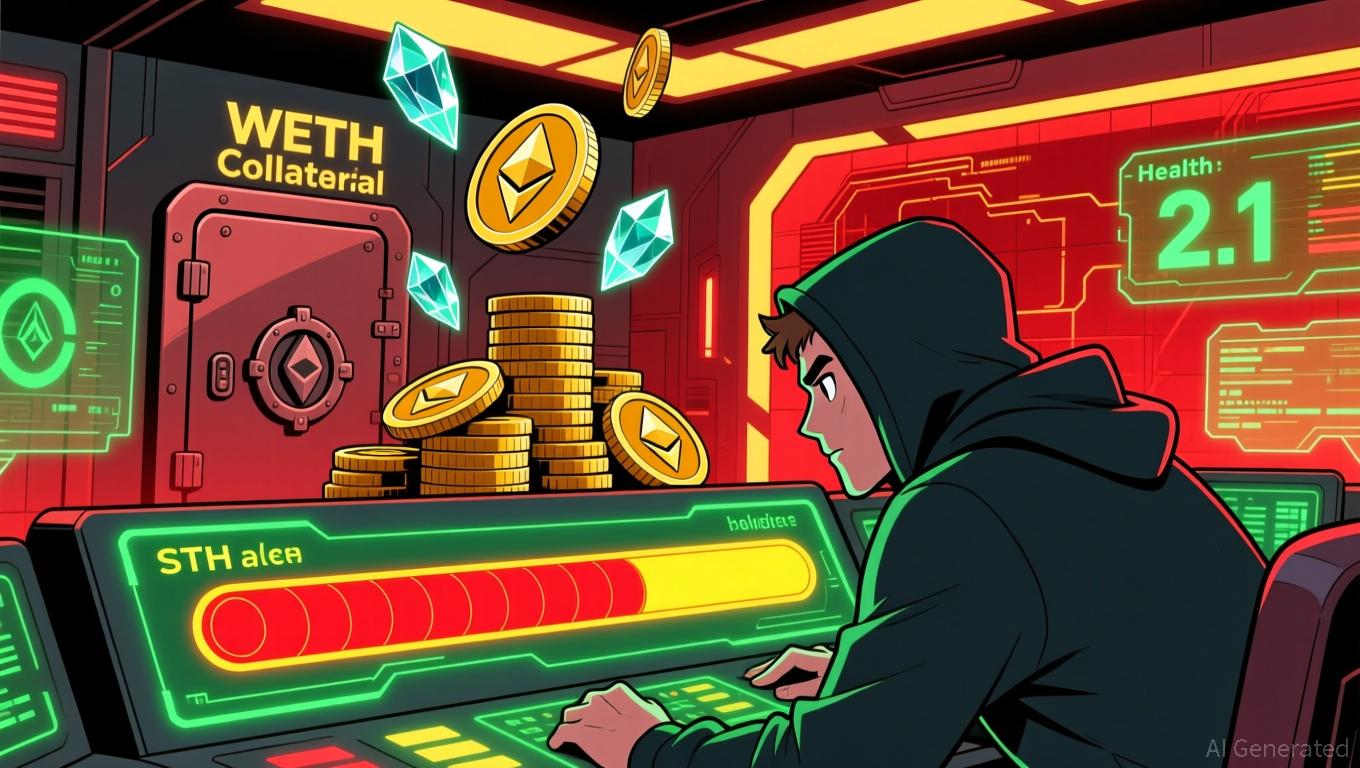Astar 2.0’s New Direction: Leading the Way in Blockchain Expansion and Business Integration
- Astar Network's Astar 2.0 roadmap (2023-2025) targets blockchain scalability and enterprise adoption through zkEVM and cross-chain interoperability. - The platform achieved 150,000 TPS via hybrid architecture, aiming for 300,000 TPS to enable enterprise-grade applications across Ethereum , Polkadot , and BSC. - Strategic partnerships with Toyota , Japan Airlines, and Sony demonstrate blockchain's real-world utility in supply chains, loyalty programs, and asset tokenization. - Staking 2.0 governance and c
A New Era of Scalability: From Concept to Implementation
Central to Astar 2.0 is its zkEVM mainnet, which debuted in 2024, allowing Ethereum-compatible applications to function with much lower gas costs and increased transaction throughput. This breakthrough directly addresses Ethereum’s persistent scalability limitations, providing developers with an affordable solution that maintains compatibility with current tools. As highlighted in a Bitget report, the network has already reached 150,000 transactions per second (TPS), with plans to boost this to 300,000 TPS—a milestone essential for large-scale enterprise deployment, according to a
The platform’s hybrid framework, known as Astar Link, further advances scalability by connecting the

Enterprise Integration: From Alliances to Tangible Applications
The significance of Astar 2.0 extends well beyond technical progress. The network has established alliances with major global brands—including Casio, Mazda, Japan Airlines, Sony, and Toyota—to incorporate blockchain into conventional business sectors. These partnerships cover areas such as logistics, loyalty programs, and tokenization of real-world assets (RWA), illustrating blockchain’s real-world value outside of speculative markets.
For example, Astar’s collaboration with Toyota’s supply chain aims to boost transparency and traceability in car manufacturing, while its work with Japan Airlines is focused on blockchain-powered loyalty solutions. These efforts reflect a broader movement among corporations to leverage decentralized technology for cost reduction and operational improvements. As mentioned in the Bitget coverage, Astar’s emphasis on real-world asset tokenization is especially attractive to institutional investors, as it paves the way for new asset-backed DeFi offerings.
Institutional Focus: Governance, Regulation, and Security
For institutions, adoption requires more than just scalability—it also demands strong governance and adherence to regulations. Astar 2.0 meets these needs with its Staking 2.0 framework, which brings a decentralized governance structure that aligns the interests of developers, validators, and users. This approach empowers stakeholders to participate in protocol decisions, ensuring the network evolves transparently and with community input, as described in the Bitget analysis.
Moreover, Astar has implemented top-tier security protocols, including comprehensive smart contract audits and compliance solutions tailored for institutional users. These safeguards are vital for attracting traditional investors who may be cautious due to the volatility and regulatory uncertainty that have historically affected the crypto industry.
Summary: Astar 2.0 Driving the Next Generation of Web3
Astar Network’s strategic transformation through Astar 2.0 offers a comprehensive solution to the challenges of blockchain scalability and enterprise integration. By blending technological advancements with real-world collaborations, the platform is not only overcoming the shortcomings of current blockchains but also building a bridge between decentralized networks and established industries. For investors, this positions Astar as a significant contender in the emerging Web3 infrastructure landscape, where scalability and institutional confidence intersect.
As the roadmap for 2023–2025 unfolds, Astar’s achievements in TPS, cross-chain compatibility, and corporate partnerships will serve as key measures of its sustainability. Those who appreciate the importance of these developments may see Astar 2.0 as a promising investment in the future of blockchain technology.
Disclaimer: The content of this article solely reflects the author's opinion and does not represent the platform in any capacity. This article is not intended to serve as a reference for making investment decisions.
You may also like
Ethereum News Update: Major Ethereum Holders Invest $1.37B During Market Dip, Indicating Potential Rise to $10K
- Ethereum whales spent $1.37B buying 394,682 ETH during November 2025's 12% price drop, signaling strong bullish conviction. - Aave whale leveraged $270M loans to acquire 257,543 ETH ($896M), using a high-leverage borrowing-swapping cycle to expand holdings. - Institutional buyers like Bitmine Immersion added $139.6M ETH, joining coordinated accumulation as exchange reserves hit 2016 lows. - Market fundamentals show negative MVRV readings and $3,400 ETH stabilization, with analysts projecting $4,800–$10,0

UAE Executes Its Inaugural Digital Dirham Transaction: A Key Step Toward Shaping the Worldwide Digital Economy
- UAE executed first government transaction using Digital Dirham CBDC via mBridge platform in under two minutes. - The pilot involved Dubai Finance and Ministry of Finance, demonstrating blockchain-driven efficiency in public sector payments. - mBridge collaboration includes BIS, CBUAE, and regional partners, with Saudi Arabia joining in 2024 to expand cross-border capabilities. - UAE leaders called the initiative a "strategic pillar" for digital economy growth, aligning with global financial modernization

Visa’s Stablecoin Express Lane: Seamless, Real-Time Global Payments for Freelancers
- Visa launches stablecoin pilot for instant global payouts to gig workers, bypassing traditional banking infrastructure. - Program uses USD-backed stablecoins to address currency volatility and limited banking access in underbanked regions. - Initiative aligns with blockchain integration strategy, supported by regulatory clarity from the GENIUS Act and Visa's tokenized asset platform. - Pilot complements Visa's legal settlement negotiations with merchants and positions the company to maintain leadership i

Bitcoin Updates: Changes in Market Structure and Growing Institutional Interest Help Stabilize Bitcoin's Price Fluctuations
- Bitcoin's volatility may ease as options market maturity and institutional adoption reshape market dynamics. - Options open interest ($40B) now exceeds futures, signaling sophisticated hedging and reduced price swings. - JPMorgan's 64% IBIT holdings and Trump Media's 11,500 BTC reserve highlight growing institutional confidence. - Analysts project $170,000 BTC price potential but note lingering volatility amid mixed ETF flows and macroeconomic risks.
